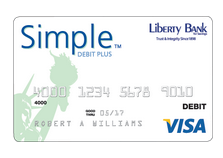Disclosure: Thanks to Becky Wilcox, site supporter, for this post.
Credit cards aren’t often seen as tools for saving money. This is due in large part to the way credit card companies charge interest and fees on your account, which can cost you thousands of dollars over time. There is a way to beat the companies at their own game, and it involves following four simple rules.
Rule 1 – Pay Your Bill When It Arrives
Interest accrues every day that you carry a balance on your card. The sooner you make a payment, the sooner you can lower your balance and lower the dollar amount of your interest charges.
Waiting until the due date puts you at risk of the payment being late, even if it’s only by a few hours. For example, you could attempt to pay online, on the due date, and find the website is offline until midnight, making your payment late. Some cards could give you a grace periods, but many will charge a late payment free the second your payment is late.
If your card is maxed out, that late fee could result in an over-limit fee. You could end up paying $35 for each fee, which means that and that $50 payment soon becomes a $120.
Also, if you are late, the credit card company could increase your interest rate, costing you even more in the long run.
Rule 2 – Pay More than the Minimum Payment
When you make the minimum payment, it actually allows the credit card company to earn extra interest from you. This is because paying only the minimum reduces the total balance too slowly, which means it will take you much longer to pay it off – during all that time, the credit card company is collecting interest.
By paying more than the minimum due, you can reduce your balance much quicker, and end up paying much less in interest. Ideally, you should try to pay off the full amount of one of your itemized purchases (two or more if each one is less than your minimum payment). If you can’t afford that, at least try to pay double the minimum, in one lump sum, or in two separate payments.
Rule 3 – Transfer Your Balance to a Card with a Better Interest Rate
Transferring your balance has two benefits, you will be on record as having paid off the one card, and you will be paying less interest on the new card. Some card may offer deals where you pay no interest when you transfer your balance.
Once you transfer to the new card, you should not use the new card for anything else until you pay off the balance. This is because some companies may apply any payments you make toward the balance transfer and not toward new purchases. So even though you’re not paying interest on the balance transfer, you could end up paying interest on any purchases, and the purchase balance won’t go down until you have paid off the transfer.
Rule 4 – Reduce your Number of Cards
Having several cards puts you at greater risk of overextending yourself and paying thousands of dollars in extra interest. Additionally, if you have rewards cards that charge a yearly fee, in addition to interest on purchases, you could be paying more than you could ever earn in rewards.
If you must have a rewards card, choose the card that has the best rewards, along with the best interest, and transfer the balances of the other cards to one other card that you intend to pay off. If you don’t have one card with enough to transfer all the balances, then stop using the other cards and close each one as you pay it off.






Small Footprints says
I think that credit cards can be a tool for saving money … but it takes discipline. Each month, we make a budget. Then, we use our credit card, as much as possible, for those budgeted items. Since we already have the money in the bank, we get up to 30 days of interest on our money. When we receive the bill, we pay the entire balance. We also earn rewards for using the card … in our case, we earn gift cards. So that’s like free money. As long as we don’t ever allow ourselves to deviate from our budget, the system works well. Thank you for all of your tips. I especially like your advice for not paying at the last minute.
Ari T. says
Very helpful advice regarding credit cards. I didn’t know about offers to transfer balances without interest rates! I should look out for this! It’s easy to sign up for rewards cards but reading the fine print is essential, I’ve realized. The incentives may be attractive but hidden charges and fees can cancel out the rewards!